|
|
Release Notes
Selection: Croftengea single malt, light, sweet smoke with mellow orchard fruits. Marsala wine oak barrique from Sicily, Italy, nutty, dry fruits with mellow oak spice.
Result: The gently peated malt and the Italian wine cask combine to create sumptuous flavours of sweet hickory, honied cereal and bbq tropical fruits. A fine dance between oak and spirit leaves a long moreish finish with elegant, sweet smoke.
Result: The gently peated malt and the Italian wine cask combine to create sumptuous flavours of sweet hickory, honied cereal and bbq tropical fruits. A fine dance between oak and spirit leaves a long moreish finish with elegant, sweet smoke.
From the Bottle
The Bottler: Murray McDavid
| Established: 1996 |
| Silent since: False |
| Address: 56 Walton Street Knightsbridge London SW3 1RB England, UK |
| → website |
The range is intentionally small, less than 10 bottlings at a time, selected from distilleries which produce great whiskies, rather than simply distilleries having a well known name.
The "Mission Gold" Range is a collection of some of the oldest and rarer casks in Murray McDavid cellars , chosen for their out standing quality and uniqueness.
Some of these whiskies are selected for further refinement with a period of Additional Cask Evolution (ACE"d) on Islay in European Oak wine casks such as Chateau Lafite, Chateau Margaux, Chateau d"Yquem,
All bottlings are with Islay Spring water, bottled at the Bruichladdich distillery. they never add any colouring, nor do they chill filter
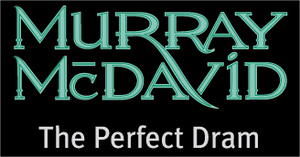
The company is named after Mark Reynier"s grand parents, Harriet Murray and Jock McDavid, Unlike other Independent bottlers, Murray McDavid hasn"t a blenders tradition to follow, bottling only single malts instead of blends.
With Mark Reynier, third generation wine merchant, Murray McDavid has taken several aspects from the wine industry in the preparation of their bottlings, for example always tasting each individual cask, then creating a collection of several casks from the same distillation to create consistency and maximise complexity. Gordon Wright was the only one of the founders with experience in the whisky world.
Mark Reynier, Simon Coughlin and Gordon Wright founded Murray McDavid in 1996.
Murray McDavid became a major investor in Bruichladdich distillery on Islay around 2000 when they purchased the distillery from JBB/Whyte & Mackay via a consortium of 25 different shareholders that operated under the name "Bruichladdich Distillery Co. Ltd.".
In 2013 Murray McDavid was acquired by Scotch services company Aceo Ltd.
In 2013 Murray McDavid was acquired by Scotch services company Aceo Ltd.
from Malt Madness, Murray-McDavid.com, The Interwebs
The Distillery: Loch Lomond
| Established: 1966 |
| Silent since: False |
| Address: Lomond Estate, Alexandria, G83 0TL Scotland, UK |
| → website |
The Loch Lomond distillery is an odd one. For one thing, as far as I know it"s the only distillery with exactly the same name as its (main) water source. And that"s not the only odd thing; because they have three types of stills (two traditional pot stills, four "Lomond" stills and one column still) on the premises, they can produce an incredibly wide variety of brands and whisky types. And unfortunately they do...
"The further category being floated does not therefore reflect traditional Scotch Whisky distillation and practice. Such a move would undermine the proposals and confuse consumers. The product in question is in any event already covered by the term "Single Grain Scotch Whisky" outlined in the draft Regulations."
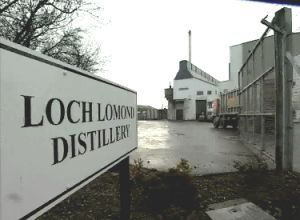
Ah, yes.... Whenever the SWA can"t come up with an answer that makes sense they fall back on that old chestnut of theirs; "customer confusion". If there"s anything that confuses customers it"s the endless stream of half-truths and outright lies that is emanating from the offices of the SWA. As you may have guessed, Loch Lomond isn"t a member of the Scotch Whisky Association. The fact of the matter is that distillation of malt whisky in Coffey stills actually IS a traditional practice. According to Ulf Buxrud, the use of continuous still in the production of malt whiskies was not uncommon during the period 1887-1945. After 1945 the Christie family - the people behind the "Speyside" distillery - apparently used Coffey stills to produce some malt whisky in the early 1960"s. So, let"s all whistle the SWA theme song now: "Twisting the truth away..."
For many years Loch Lomond was quietly churning out its fairly mediocre whiskies when the distillery suddenly found themselves in the middle of a little riot. In 2008 the SWA (the Scotch Whisky Association; primarily a lobby organisation for other large whisky producers) proposed new legislation that would outlaw the use of the phrase "single malt whisky" on bottles of Loch Lomond.
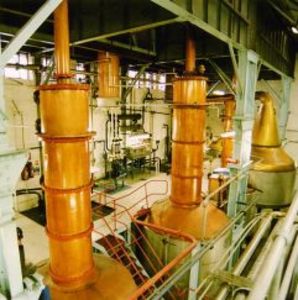
Loch Lomond proposed a separate category for some of their unique whiskies, but Campbell Evans of the SWA replied: "The SWA, whose members account for over 90% of all production and sales, rejects the notion of a sixth category. Traditionally, two types of Scotch Whisky have been produced, Malt Scotch Whisky produced by a distillation of a mash of malted barley in pot stills, and Grain Scotch Whisky produced by distillation of different cereals, including malted barley, in patent stills." Campbell then continued with:
If you"ve ever bought a bottle of Craiglodge, Croftengea, Inchfad, Inchmoan, Inchmurrin or Old Rhosdhu because you thought the whisky was crafted at a picturesque obscure distillery by that name, you were sadly mistaken - these are all brands from the Loch Lomond Distillery. I"m not a fan of most of their work, but tried a spectacular Croftengea.
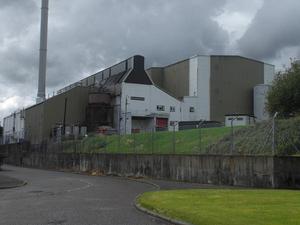
Loch Lomond is one of the more recently constructed distilleries in Scotland. It was built in 1965 and production started in 1966. Ownership of their Littlemill Distillery Company Ltd. parent company was divided between Barton Brands and Duncan Thomas, but the latter sold his shares a few years later. The distillery was closed in 1984 after the whisky industry was hit hard by a recession. Glen Catrine Bonded Warehouse Ltd. became the new owners in 1985, and in 1987 production was resumed at the Loch Lomond distillery. Until 1993 they only produced malt whisky, but in that year a Coffey still for the production of grain whisky was installed as well. After that date, whisky production at Loch Lomond increased dramatically - but keep in mind that grain whisky is much easier to produce than malt whisky.
In The New Millenium
- 2004 - The Loch Lomond distillery already produced a large number of different brands in the past (Loch Lomond, Old Rhosdu, Inchmurrin, etc.) and in 2004 the Croftengea brand is added to the Loch Lomond malt whisky portfolio.
- 2005 - The "Craiglodge" and "Inchmoan" brands are launched.
- 2006 - The "Inchfad" brand is added to Loch Lomond"s whisky portfolio.
- 2008 - In 2008 the Scotch Whisky Association (the SWA; a lobby organisation for large whisky producers) proposed new legislation that would outlaw the use of the phrase "single malt whisky" on most bottles of whisky that were produced at the Loch Lomond distillery. Loch Lomond proposed a separate category for some of their unique types of whisky, but the SWA rejected their proposals.
Trivia:
- According to Dave Broom, malt whiskies produced in Coffey stills are also known as "silent malts".
- The owners of the Loch Lomond distillery are Glen Catrine Bonded Warehouse Ltd. They also own the Glen Scotia distillery in Campbeltown - as well as a silent distillery in the Lowlands; Littlemill.
- Loch Lomond is the favourite whisky of Captain Haddock - a fictional character from the Tintin comic books. I guess that should be a slogan on many of their bottles: "best drank by fictional characters" ;-)
- The peating level of the malted barley for Croftengea is 40PPM.
- The Loch Lomond distillery has eight stainless steel washbacks with a contents of 50,000 litres...
from Malt Madness
The Owner: Glen Catrine Bonded Warehouse Ltd
| Established: 1974 |
| Silent since: False |
| Address: Laigh Road Catrine, Mauchline KA5, UK |
The group also own Loch Lomond Distillery (established circa 1814) which is a unique blend of the old and the new. Originally purchased in 1985 to ensure an adequate supply of malt whisky for the bottling plant, Glen Catrine have since invested in excess of £15.5 million in new Malt & Grain stills and new warehouses. It is currently the only distillery in Scotland that produces both grain and malt whisky on the same site. The average annual production is 10 million litres of grain alcohol and 2.5 million litres of malt alcohol, the equivalent of 43 million standard bottles of whisky every year. The average stockholding is in excess of 50 million litres of scotch whisky, making them the second largest family owned Distillery in Scotland. They also own two other distilleries, Glen Scotia and Littlemill. Glen Scotia, which resumed production in 1999, is one of only two Campbeltown Distilleries that remain in production. Being a privately owned family company, they seek to enter long-term relationships with their customers

Glen Catrine Bonded Warehouse Ltd. (established 1974), is now the largest independent bottling plant in Scotland, but was originally created to bottle whisky for their own chain of retail shops. Its current annual production is in excess of 36.5 million bottles of whisky, vodka, gin, rum and brandy. Amongst a multitude of brands, they produce the 5th highest selling whisky in the UK (High Commissioner Scotch Whisky) and the 2nd highest selling vodka in the UK (Glen"s Vodka). They also bottle Whisky, Rum, Brandy, Gin & Vodka for many of the leading "private" labels available in a variety of multiple retail outlets.
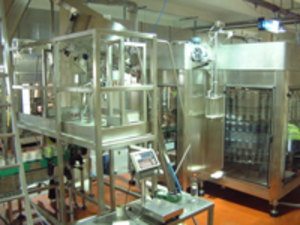
from Enterprise Tondelli
The Owner: Aceo Ltd.
| Established: 1999 |
| Silent since: False |
| Address: Rodley |


Aceo Ltd has been supplying cask Scotch whisky and related distillery services to the Scotch whisky industry since 1999. It offers a complete cask to case service that covers everything from cask whisky sales to storage, blending, bottling, labelling and transportation.
Aceo has strong links with the major whisky producers and owns a very large stock of cask whisky which lies in distillery warehouses throughout Scotland. Our large stock holding means they are able to offer the full range of Scotch whisky including single malt, single grain and blended products. They can also supply a range of other spirits such as rum, gin and cognac.
They hold their customer's casks on their behalf and offer services including sampling, regauging and re-racking.
In 2013 Aceo Ltd acquired Murray McDavid independent bottlers.
Aceo has strong links with the major whisky producers and owns a very large stock of cask whisky which lies in distillery warehouses throughout Scotland. Our large stock holding means they are able to offer the full range of Scotch whisky including single malt, single grain and blended products. They can also supply a range of other spirits such as rum, gin and cognac.
They hold their customer's casks on their behalf and offer services including sampling, regauging and re-racking.
In 2013 Aceo Ltd acquired Murray McDavid independent bottlers.
from Aceo
